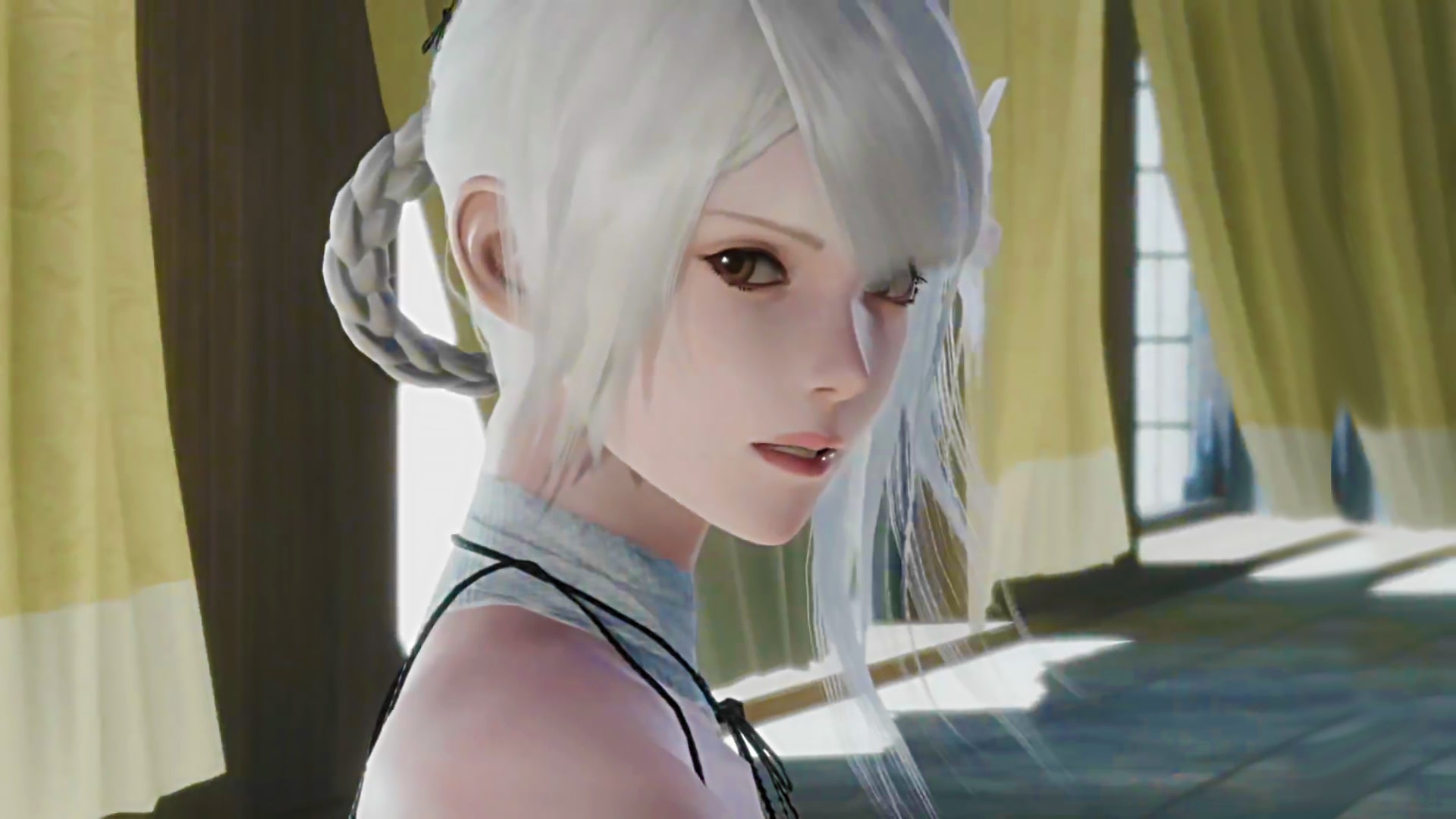And now, after what feels like an eon of pandemic anxiety, death, struggle, and economic despair, we have the much-anticipated re-release of Nier Replicant. Sorry - Nier Replicant ver.1.22474487139. [This article has loads of spoilers for Nier Automata, and some of them are really big. This is your warning.] I didn’t play Drakengard, or the original release of Replicant - to me they’re legends of the time before Nier: Automata, which I loved. But knowing how Automata begins and ends has given me a weirdly firm sense of conviction about its predecessor. Where Automata was the scalpel, using the travails of androids 2B and 9S (and, later, A2) to carefully and methodically peel back layers of branching narrative to reveal painful existential viscera, Replicant feels very much like an impending sledgehammer. It is, of course, reductive to call Replicant the Rogue One of anything. Nier worldbuilding and storytelling is in a league of its own. Part-JRPG, part-mindfuck, all-unpredictable, it transcends basic Disney-approved story beats. I wouldn’t be the first to point out that it’s possible to glimpse wild Nier spoilers online and still have zero clue how they actually play out in the game. So much of the tension in Automata is expertly built around not knowing how things are going to unfold within the context of a conventional story arc. Replicant, arguably one of the most-anticipated games of this year, is one that we already know the ending to. Recursion is one of the most certain things we can expect in life, next to death and taxes, and the core theme of Automata itself. But Automata grabs your head and forces you to watch every ending - including the deaths of A2, 9S, and 2B - as a matter of narrative holism and posterity before you can choose to have all your painstakingly-earned game data wiped in a frantic bullet-hell credit sequence. Its constant shifting between camera perspectives and combat styles rejects the idea of comfort and familiarity; as a player, you’re forced to both adapt to it, and to accept the fact that you’re not in control (and nothing really hammers this home more than the series’ fictional chaos language, which evokes familiar fragments of our modern languages, but is utterly unparseable). It’s really hard for me, and I suspect others who dwell too much on these sorts of things, to separate the experiences of 2020 from Automata’s themes: the seemingly insatiable desires that drive violence, our blind human insistence on maintaining divisions, and how we inevitably end up playing out the same pain and despair time and time again. Because 2020 wasn’t just about coronavirus - it was also (yet another) year filled with police brutality, high-profile cases of racism and transphobia, class injustice, and increasingly terrifying climate doom. In many works of dystopian speculative fiction, these are all examples of Bad Things that inevitably snowball into massive world-ending cataclysms. And while Automata doesn’t delve into the exact details of what kind of violence and vitriol led to its own post-apocalytic status quo, it doesn’t really need to. For all its stylishness and glib humor, the game pulls no punches in its dissection of humanity’s worst instincts; its final message, to paraphrase David Lynch, is that we need to fix our hearts or die (perhaps, if you chose to wipe your game data, it’s that we need to fix our hearts and die). Given the way Automata ends, I don’t think I’ll ever play it again. I’m not sure if I love-hate myself enough to go through the full set of endings a second time. This isn’t the sort of game most people load up when they want a mindless distraction. Every square inch of Automata is steeped in the language of existential depression. The prospect of spending all those hours to essentially create the same data and follow the same story beats is both wildly masochistic and a perfect example of how the game has perfectly managed to weaponise repetition. Whenever someone considers doing it, I am sure in my soul that Yoko Taro smiles a little bit, wherever he is in the world. So where does this leave the folks who didn’t play Replicant? It’s the first appearance of some of Automata’s beloved characters, notably Emil - technically a minor character in Automata, but an incredibly important one - and the android sisters Devola and Popola, who are stuck in a fixed role cycle after cycle, game after game. Replicant is also set in a time of a strange disease, the Black Scrawl, that doesn’t seem to have a cure - perhaps a touch too close to home for all of us still living during a pandemic now. And Replicant is a chance to explore the nascent nationalism in the gameworld, where people are suspicious and terrified of infection, of dangerous Shades, and of each other. Herein lies the small, neurotic seed that eventually leads to the elite military group YoRHa, a sense of militant righteousness that pits two factions against each other. Sound familiar? Even after all the energy and emotion I poured into following 2B and 9S to the bitter end, I feel strangely invigorated at the prospect seeing how it all began. If Automata is old trauma, perhaps Replicant is the therapy we need to fully accept the past. There’s a great sense of freedom in living through the end, especially if the end means annihilating everything you know to make way for something new. Will we actually ever get the courage to do that? Probably not in my lifetime. But can we edge a little bit closer to a different future?

